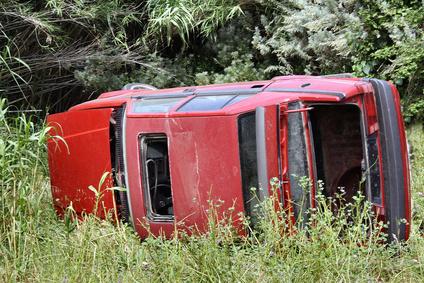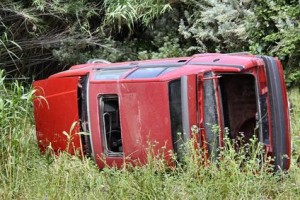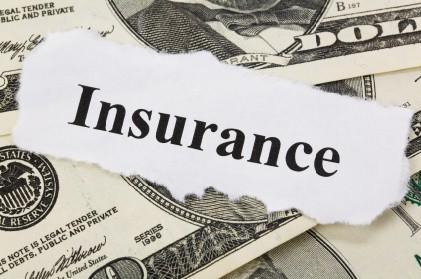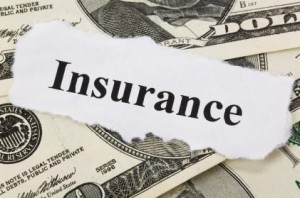What Is Collision Insurance?

There are so many different types of auto insurance policies out there that it can be confusing learning exactly what is collision insurance. It is, however, important to know what types of car insurance policies are available before making a decision about which type would be appropriate for your situation. Of course, the best way to make this determination is to learn what collision car insurance is and what it isn’t.
Collision Auto Insurance – A Basic Understanding
So what is collision insurance actually?

- As the name would suggest, collision car insurance covers you when you have a collision with another object.
- For some auto insurance policy providers, the guidelines of the policy include coverage only for accidents involving other vehicles.
- Other policies, however, may cover collisions involving an object other than another vehicle. It is important to check when getting a policy what exactly will be covered. This also means checking with the current collision car insurance you have instead of assuming you know what your coverage is.
- In other cases, you will need another type of policy to cover other types of accidents. For instance, if your collision involves striking a building, fence or animal, you may need comprehensive to fill in the gaps.
Getting the Rates You Want
There are some things that will help you determine how much your premiums will run when it comes to getting collision coverage for yourself.
- How much coverage you want – If you are financing your car, you may need more than the average driver because you have a car of greater value and the loan coverage to consider. Or you may simply want to make sure in the event of an accident you are fully covered so you have no out of pocket expenses.
- What your deductible is – The deductible is the amount of money you pay from your own pocket in the event of an accident before your insurance carrier starts paying on the claim. For most drivers, the average is around $500. So if you set your deductible as low as $250, your premiums will be higher. If you have it as high as $1,000, your rates will be lower but you will have to come up with a large sum from your pocket in the event of an accident.
- How often you pay – Those drivers who choose to pay for their collision auto coverage on a monthly basis will be paying more for premiums as opposed to those who opt to pay every three months, six months or per year. If you can save up a little and make a larger lump sum payment for your policy premiums, you will see great discounts because of this. Also find out about discounts for setting up to have your payments come out of your bank account instead of mailing in a payment.
Of course, to save even more money on premiums you need nothing more than your zip code. This will give you access to the most competitive collision insurance rates available.
Collision Insurance Coverage in New York

Insurance can be confusing, leading to a lot of different questions. Collision insurance is a type of insurance coverage that provides better coverage than liability but less insurance than full coverage policies. It is often a lower cost option than full coverage but may require a secondary policy called gap insurance.
Driving in New York can be one of the most difficult tasks because of the sheer number of vehicles on the road there. The more drivers, the more likely that you are to be involved in an accident of some kind.
How Much Does Collision Insurance Cover on My Vehicle? 
The amount of coverage that you will get from collision insurance will depend on the fair market value of the vehicle. That amount is often determined by using the book value of the car and may also involve using local dealer appraisals and estimates of value of the type of car. Because a car can be in different conditions even when they are the same make, model and year, most books will list a price for poor, fair and excellent conditions.
Repairs on my car were estimated at $5,000, but the insurance company only sent a check to the garage for $4,000. Why is that?
On your insurance policy, you probably have a deductible, an amount that is your own responsibility before the insurance kicks in. The higher this deductible amount is, the lower your insurance premium may potentially be.
This is the reason why it is so vitally important to understand the terms of your insurance before you sign on the dotted line or pay your first premium. You can change the amount of your deductible keeping in mind that the amount can change your premium.
My car was totaled in an accident. The collision insurance amount was determined to be $7,500 total. There is an outstanding loan on this vehicle for $9,500. Now what do I need to do?
In the case where there is an outstanding loan amount remaining, you would be responsible for that amount unless you have a special kind of insurance called gap insurance. That insurance coverage will pay the remaining amount after the collision insurance has totaled out so that you do not have to pay it out of your own pocket.
Is collision insurance a legal requirement?
There are no states in the US that require collision insurance because it is coverage that is over and beyond liability. Liability insurance is required in virtually every state to protect the drivers and their property. However, even though there are no states that require collision insurance, you may be required to have it if you have a lease or a loan on that vehicle to protect the finance company’s interest. You will typically be required to continue that coverage until the full amount of the loan has been satisfied. The finance company may require proof of insurance on a rotating basis.
All states, including New York, require proof of financial responsibility. For as long as your vehicle is registered in that state, you will have to have valid New York insurance even if you are out of the state. If the registration is in the state, the insurance must be from that state as well.
What if I have special additions to my vehicle?
Special additions to your vehicle, such as modifications to its interior, appearance or performance are time consuming and can be very expensive to install. They can also change the value of your car, with the exception of the period during a loss. The insurance company will not use those special modifications to determine the value of your vehicle for insurance purposes. However, you can use either a gap policy or a special insurance coverage policy to make up the difference for those expenses. Some examples of these additional costs that you might want to cover include:
- Stereo and other audio equipment
- Security equipment
- Specialized paint jobs, decals or stickers
- Specialized equipment installed for personal use and mobility
Special Note: Covering the cost of certain types of decals, for example those used to advertise your business or company name, may better be covered by using insurance coverage such as commercial insurance rather than relying on gap insurance and collision coverage.
How do I know that I have gotten the best coverage at the best price?
As with any other type of insurance coverage, the first step to getting good collision insurance coverage is by getting a number of insurance quotes. It is a simple process that will only take a few minutes and could save you hundreds of dollars on your policy. The amount of money that you are going to pay on insurance is enough that it is really worth the investment of your time to get the best price possible.
In addition to discussing insurance coverage during your quotes, it is important to look at insurance discounts that might be available to you. Those can really add up and can include:
- Paperless discount (saves the company money)
- Paid in full discount
- Multiple policy discount
- Loyalty discount
- No claims discount
- Good student discount
There are a number of insurance companies that offer additional insurance discounts for certain types of professions including teachers, police officers, medical professionals and veterans.
My insurance company does not offer loyalty discounts but they are conveniently located, should I change carriers?
Convenience is not always the most important feature these days. In the past, when you had to go to the office to pay your insurance, that was something important however, many people take advantage of the other methods of payments instead. Most people can pay their insurance using an electronic check, debit or credit card over the phone, by mail or on the internet. Make sure that you are not making these changes in insurance coverage without ensuring that you are still covered. Any gaps in coverage can affect the cost of your new policy and may result in a suspension of your New York driver’s license or removal of your license plates.
Before you change insurance policies, consider the cost of the coverage and the service that you currently have. If you are satisfied with both, it might be wise to ask the insurance agency if there are any additional discounts that they can offer you, suggesting that you might be shopping around for better prices. They may surprise you with additional discounts if they possibly can.
I was just involved in an accident, what should I do?
If you are involved in an accident, your first step should always be to make sure that everyone is safe and secure. Take photos of the accident, the vehicles and the scene if possible. (If you do not have your cell phone with you, it is a smart idea to keep a disposable camera in your glove box in case of accidents.) If possible, move all vehicles out of the roadway as much as possible and then call the police and emergency crews if they are needed.
Exchange insurance information with the other party, if there is one, but do not volunteer your assessment of the accident or who is at fault. Get all of the necessary information from the police regarding the police report and then call your insurance agent for your next steps.
Some insurance agencies would like to be notified while police are at the scene and may come to the accident scene in person if they are local.
Collision Insurance in Ohio – Do You Need It?

Insurance is sometimes a scary word, especially to people who are confused by the various terms that are involved. In addition to confusing words and phrases, the insurance that you need can become even more scary when you are forced to determine what level of coverage that you need. In Ohio, you must show that you are financially responsible when you become a licensed driver, which can simply be done with having a valid insurance policy in place.
One of the most common types of insurance coverage is collision insurance, which provides coverage in the middle ground. Liability insurance only covers for damage to other people’s vehicle or property but pays nothing for your own vehicle. 
Full coverage insurance is more security, covering the cost of your own vehicle as well as the other person’s vehicle and property damaged in an accident but can be very expensive to keep. Once a car is below a certain market value, it makes little real sense to keep the full coverage insurance on it. Ohio drivers may consider collision insurance to afford more protection without having to pay for full coverage on a car that is not really worth it.
Collision insurance is often the compromise solution. The major points of collision insurance include:
- Cash will be paid for damages to a covered vehicle for an accident in which you are determined to be at fault.
- Collision insurance will pay up to the market value of the car.
- It includes a deductible amount, which can either raise or lower your coverage amount.
- It is not required by law in any state in the nation but may be required in other circumstances.
- It may not fully cover the cost of replacement or repairs to your vehicle, especially in the case of a vehicle that is very expensive, has been greatly modified or needs a dramatic amount of repairs.
What Happens if You Need Additional Coverage?
If your vehicle is older but has been modified in a number of ways or has specialized equipment, you might not be satisfied with the coverage that you would get from just collision insurance. In addition, when you are leasing or financing the vehicle, you will be required to pay for collision insurance, but if the car is determined to be a total loss, you will still be required to pay the remainder of the loan on your own. In that case, you would benefit from having a secondary insurance policy called “gap insurance”
Gap insurance can be used to cover:
- Specialized, in dash audio equipment
- Lights and other accessories that are permanently installed in or on the vehicle
- Decals, specialized paint jobs or other details added to enhance the vehicle’s appearance
- Specialized equipment for mobility, such as wheelchair ramps or more
- Alarms or other security devices
Deductible 101: Determining the Right Amount for You
No one wants to be involved in an accident. No one plans on being in an accident; that is why they are called accidents. But, as insurance is necessary, it is best to get the best price possible on your coverage.
One of the easiest ways to change the cost of your insurance is by changing the amount of your deductible. By simply increasing the level of the deductible at the start of your coverage term, you will lower your insurance costs and give yourself lowered premiums.
Deductible costs can seem frightening, but if you never have an accident or loss, they are inconsequential.
If you are truly afraid of the cost of the deductible, it might be better to lower it slightly, but understand that it is going to raise the overall cost of your insurance.
How the collision insurance and deductible work:
- The vehicle is involved in an accident.
- Through investigation or admission, that accident is determined to be your own fault.
- The car’s damages are assessed and a cost is assigned, typically through estimates. Your insurance company may have a particular garage that they will send you to for repairs.
- The deductible amount will be paid by you directly.
- The insurance company will pay the remaining amount for the repairs.
- The insurance company will determine whether to reinsure the vehicle or not. If they do reinstate the policy, the coverage amount will likely increase because there has been a loss on the car.
If there is a loss that is beyond what the insurance will cover, you will be responsible for the remainder whether it is the cost of repairs to the vehicle or the amount paid to the finance company for a totaled vehicle. Gap coverage is your best protection in this case.
Collision Insurance in Michigan

There are no states that legally require collision insurance. In some states, insurance agencies only write certain types of policies because each state has its own requirements. Of course, agents will often suggest different levels of coverage with most of them looking for the absolute optimal level of coverage for their clients.
Understanding Michigan Collision Insurance
One of the most common types of automobile insurance coverage is collision insurance, which will pay for damages that occur in an accident even if it is your fault. (With other types of insurance, coverage may not be extended if you are determined to be at fault.) There are some facts that you should keep in mind when choosing collision insurance including: 
- It will only pay for the cost of repairs up to the fair market value of your vehicle. That amount may not be what you owe on a loan or lease, nor will it be what you personally believe your vehicle to be worth.
- It will come with a deductible amount that you will have to pay. This amount can vary at the start of the policy based on what you choose. A higher deductible amount can potentially lower the amount of the premium that you would pay.
- Michigan collision insurance may be required by a financial institution if there is a lien or lease on the vehicle.
The Collision Insurance Variations Offered by Michigan Insurance Agencies
In some states, such as Michigan, collision insurance is offered in several forms. The three types of collision insurance offered by Michigan insurance companies include:
- Standard Collision Insurance: This insurance will repair or replace an insured car regardless of who is determined to be at fault.
- Broad Form Collision Insurance: With this coverage, you only have to pay the deductible included if you are determined to be more than fifty percent at fault in a covered accident.
- Limited Collision Insurance: If you are less than fifty percent at fault in a covered accident, the insurance will cover the cost of repairs after the deductible is paid. If you are determined to be more than fifty percent at fault in a covered accident, the limited collision insurance will not pay for anything.
Changing the Cost of Your Insurance Coverage
Insurance can be very expensive, however, there are ways to bring the cost down. The cost of the premium that you pay can be brought down in a number of ways:
- By seeking out all of the potential discounts that are available. Examples include: paperless, paid in full and multi policy discounts
- By agreeing to pay a higher deductible amount upfront
A special note about the deductible: when you are involved in a covered accident, your insurance will pay for the amount of repairs to your car (up to the fair market value) after the deductible amount has been satisfied. For instance, if you have a $1,000 deductible amount and your car is determined to need $5,000 in repairs, you will need to pay the first $1,000 of those repairs before the insurance will kick in.
Florida Collision Insurance Coverage

For people who are interested in protecting their car, there are many types of insurance. One of the most popular types of coverage is called collision insurance and may be necessary for a number of reasons. No matter what type of vehicle that you drive, you need to seriously consider Florida collision insurance coverage.
What Does Collision Insurance Mean?
Collision insurance is a type of insurance that pays for the damages to your car in certain circumstances. It should be noted that there are some limits to what this type of insurance will actually cover, however. In Florida, you may need to consider the fact that deer vs. auto collisions may happen more frequently than in other states. Florida collision insurance may not cover the damage for those types of incidents.
The Basic Facts of Collision Insurance: 
- Pays for your vehicle’s repairs even when you are the cause of the accident. (Other insurance types may not provide coverage when you are deemed at fault).
- Pays for your car’s repairs only up to the level of fair market value, which may not be enough in some circumstances.
- Collision insurance requires a deductible, an amount that can vary according to your needs.
Collision insurance is not required in any state of the US, but is highly recommended. It may also be required in other situations.
How Your Collision Insurance’s Deductible Can Save You Money
Your insurance deductible is the amount that you must pay before insurance kicks in. To save money on your insurance coverage amounts, the deductible can be adjusted. The higher the deductible that you agree to pay, the lower your insurance premium will be. That is only one of the ways that you can get discounts on your collision insurance costs. While a higher deductible might sound frightening, there are ways to lessen the impact when the time comes.
For instance:
- Divide the cost of the deductible into monthly payments and then put that amount into a savings account, earmarked for this use only. If it is not used for the deductible, the amount can be left in the savings account or used to pay for the insurance at the next renewal.
Situations Where Florida Collision Insurance Coverage May Be Required
While there are no states, including Florida, that require collision insurance, there are some situations where it will be:
- If you are leasing your vehicle, the leasing agent will require collision insurance for the life of the lease.
- If you have a lien on the vehicle, collision insurance will be required as well.
Will Collision Insurance Alone Be Enough for My Vehicle?
If you are involved in an accident, collision insurance will cover repairs to that vehicle up to the fair market value. In some instances, that amount may not be enough. These include:
- When there is a lease or lien on the vehicle
- When the car is totaled completely
- When there are additional costs associated with the accident itself
In those cases, collision insurance can be supplemented with gap insurance, which is frequently recommended for those who do not want to opt for full coverage insurance coverage for their vehicle.
Collision Car Insurance – Overkill or Wise Investment?

Getting collision car insurance can seem like an extra added expense you may not need, that is until you have an accident and realize how little coverage you have in place. Everyone wants to save money these days and rightfully so, but not if it means making mistakes securing insurance. Not having enough insurance or the right kind could actually end up costing you a great deal more than you could ever afford if you ever should have a collision. Find out how to prevent missing out by not having collision auto insurance and also how to determine if it is right for you.
Who Really Needs Collision Insurance Coverage?
The answer to that could practically be any driver who gets behind the wheel of a car. Car accidents can lead to expensive bills that without insurance can lead a person to suffer garnished wages, a repossessed vehicle, a foreclosed home or even bankruptcy. Often times consumers try to pinch pennies by cutting corners on the car insurance coverage. This can end up being a costly mistake.
What may happen without collision insurance coverage in place: 
- You could be left paying for repairs to your own vehicle. If the damage is extensive enough, you could even need to replace your vehicle altogether. The scary thing is if you have the car financed but do not have the proper collision insurance in place, you will still have to pay off the car loan even if the car is totaled.
- The same thing applies to the driver of another car if you are in an accident and deemed the responsible, at fault driver. You could end up spending a great deal of time paying off repairs or the expense of a new vehicle for another driver if you are at fault and do not have the coverage you need.
- If you do not have health insurance and have an accident without collision auto insurance coverage, you could have some very large medical bills to pay. Without collision insurance you would also be liable for the other driver’s medical bills. Keep in mind expenses related to an accident can include but are not limited to hospital stays, surgery if needed, expensive prescriptions and any after care that may result from the injuries such as physical therapy.
- Damage caused to someone’s personal property is also something to take into consideration when deciding if you do or do not need to get collision insurance. Often times an accident can result in damage to someone’s mailbox, fence or even home in extreme cases. If you would rather not be left responsible for the bill to repair someone’s home, then getting the right kind of car insurance coverage is the best way to go.
- Public property is another consideration. In many instances you may collide with a guardrail, light pole or even a building or other structure that is considered public property. This damage has to be covered by someone, and if you do not have insurance that someone is you.
Choosing between Collision Insurance Coverage and the Rest
One of the best ways to determine which type of insurance you should get is to get your free quotes and compare rates. Drivers often make the mistake of assuming they can only afford a minimal auto insurance policy such as liability coverage. Getting quotes to compare your options is the only way to really see how affordable other types of insurance may actually be. When insurance companies compete to have your business, then rates drop below what you would think.
So what are some factors to help you decide which insurance is right for you?
- Find out what your state requirements are, or if you are paying for a financed car make sure your collision car insurance policy meets the minimum guidelines as set in place by the lender. Too little coverage could result in you paying off a loan on a totaled car that you no longer have to drive. Not meeting the state requirements could result in fines and other penalties.
- What type of car are you driving? Financed cars require a good amount of collision insurance coverage and other insurance. However if your car is paid for, you can decide if the value is still high enough to carry more than liability. For older cars or vehicles in a state of disrepair having just liability auto insurance may make more sense.
- Who else is on your policy can impact what type of coverage you should have. This is especially true if you have younger, teenaged drivers on your policy. Any drivers in your household that could be deemed “high risk” will probably require you to have a fair amount of collision insurance coverage, at the very least.
Factors That Affect the Cost of Your Insurance
Before getting your collision car insurance policy quotes, you should have an idea of things that may alter the price you pay.
- As already mentioned, where you live and whether your car is financed or not impact your premium costs quite a bit. Having teen drivers or other types of “high risk” drivers on your policy will also drive the premiums up.
- Where you park your vehicle helps determine your rates per month for automobile insurance. If you live in a quiet neighborhood and are able to house your car in a garage at night, your rates are likely to be better than if you must park on the street in an area that is considered a higher crime rate area.
- Your age, driving record and even your insurance history record all effect your rates as well. Avoid blemishes on your driving record and lapses in your insurance coverage of more than 30 days to keep your premiums lower.
Now you are ready to get your free collision auto insurance quotes for free by simply filling out your zip code and getting started.
How to Play It Safe with Collision Insurance Coverage

Each year more and more traffic accidents occur without drivers having the collision car insurance coverage they truly need. When it comes to being fully covered on the open road, you don’t want to take a gamble and have less insurance coverage than you should. Instead of trying to save money by having less insurance than you should, all you have to do is shop collision auto insurance quotes and find a policy that offers affordable rates. By having insurance policy providers competing for your business, you are sure to find a policy that fits your budget and provides you with the coverage you need.
Collision Auto Insurance – What’s It All About?
Before signing up for any type of insurance, you should always have an idea of what you are actually getting. One thing you should realize is that the guidelines of your collision insurance coverage could vary from the basic ones due to your state’s requirements, if you are getting coverage for a financed car or even just due to the company where you are working.
So, what should you be getting with collision car insurance? 
- Collision insurance is meant to cover you and the car of another driver in the event that you are involved in a wreck that you are at fault for causing. If your car is not covered, then you only have a liability car insurance policy.
- In some cases, your collision auto insurance coverage will also include accidents in which you strike something other than a car. Before signing on the dotted line, at least know if you will be covered if you should hit a building or even an animal or if you need comprehensive car insurance to cover that.
- Find out if your policy also includes medical bill coverage for all parties involved. This is especially important to have if you do not have health insurance coverage.
Some Other Notes
In any case, when you are getting insurance make sure you know what the minimum coverage is to drive legally as a license holder in your state. It is also important to make sure you fulfill the requirements as outlined by your lender if your car is financed. If not, the lending company will tack on coverage, which will end up costing you a great deal more than if you get it yourself. Whether you decide to get collision insurance coverage or settle for something less is up to you as long as your coverage meets the minimum requirements for your state and your financing.
While you don’t want to be left short when it comes to your collision car insurance, you also don’t want to be caught up in having much more than you need. Be realistic about the value of your car if it is used and don’t go overboard insuring the value.
To make the best decisions and get the information you need get your quotes for collision insurance by simply providing your zip code.
Collision Auto Insurance – Understanding the Importance

The state you live in determines whether you need collision auto insurance, no fault insurance, liability car insurance or some other type of coverage. Of course, whether or not you have a financed car can have a great deal to do with how much auto insurance policy coverage you may need. Even if it is not required by your state or you think you do not need it because you are not financing your vehicle, you may be making a poor choice for your coverage.
In order to avoid making what could be an expensive mistake when it comes to your auto insurance, you should at least be familiar with what collision car insurance is. By understanding the different types of insurance and comparing rates, you will have a better understanding of what type of policy would work best for you. Think about more than pinching pennies when it comes to your auto insurance, though, because getting the fullest amount of coverage you need is more important. And the truth is that you can find affordable rates for collision insurance coverage.
Defining Collision Car Insurance
One of the best ways to understand collision insurance is to get an idea of how it relates to comprehensive auto insurance and other types of policies as well. Drivers often make the mistake of getting these two types of policies confused. This can lead to disastrous results because you may not find out what type of coverage you truly have until an accident occurs and it is too late.
So what are collision insurance and comprehensive insurance policies? 
- Collision auto insurance covers your vehicle and the vehicle of another driver in the event of an accident in which you are deemed the at fault driver.
- Collision insurance coverage is more complete than liability insurance. Liability car insurance coverage generally only covers the vehicle, property damage and medical bills of others involved in a wreck if you are at fault.
- When compared to comprehensive car insurance as offered by many insurance providers, collision insurance is sometimes lacking. Comprehensive auto insurance coverage often fills in the gaps that collision doesn’t cover. For instance, comprehensive insurance includes damage from things such as storms, natural disasters, acts of God or even theft and vandalism.
- When securing a collision insurance policy, just be sure to understand if the policy covers you whether the collision involves another car or other objects as well. Too many drivers who thought they were covered came to find out their collision car insurance policy was useless because the accident involved colliding with a building, other type of structure or even a large animal such as a deer.
Collision Insurance for You
Whether in addition to comprehensive or on its own you would probably do well to get yourself a collision car insurance policy. Take advantage of receiving your free quotes by simply providing us with your zip code and get started on making the right collision insurance policy decisions for you and your family.
Collision Insurance vs. Other Types of Coverage

If you are new to getting collision auto insurance coverage or are in the midst of trying to change policies you may realize it can be a bit confusing. Luckily it doesn’t have to be as frustrating as you may think. The best way to make this task less tedious and overwhelming is to get an understanding of what collision car insurance is when compared to other kinds and what it is you need. Aside from that, getting free quotes to compare rates for collision insurance coverage and other policies will help you make sense of it all.
An Overview of Insurance Policies 
First and foremost you have to get coverage that meets the minimum requirements of the state where you live. In order to be behind the wheel of a car legally in your state, there will be some minimal amount of insurance you must have, which varies from state to state. If you have moved recently then it is especially important to make sure you are abiding by the regulations of your new state.
Also if you have a vehicle that is financed you will have to ensure that you meet the minimum requirements for collision car insurance or other types of coverage as outlined by the lender. Otherwise you can decide what type of car insurance policy to get but should know what exactly is available to you.
Liability Insurance – This is the absolute minimum type of coverage a driver can have, and most states require a certain amount of liability car insurance coverage. Whether or not you want to go above and beyond the minimum as set by your state is up to you. This policy covers the damages or medical bills caused to another if you are the driver at fault in a collision. Your own expenses, however, will not be covered. This is ideal for drivers who have a car that is not financed and is probably not valued high enough to be worth covering for replacement and if you have health insurance in case you suffer any injuries.
Collision Insurance – Having a collision auto insurance policy means that in the event of an accident your vehicle and the vehicle you collide with will both be covered. For some policy providers this will include medical expenses for all parties involved as well. You should, however, find out if your collision car insurance will include covering your car if you have an accident in which your car hits a structure, animal or something other than a car.
Comprehensive Insurance – Many drivers choose to have either collision insurance coverage, comprehensive insurance or both. While collision car insurance takes care of you in the event of an accident, a comprehensive auto insurance policy is meant to take care of just about everything else that could happen to cause damage or loss of a car. Just make sure to find out what all is actually included in your comprehensive policy instead of assuming. For example, some policies include coverage for acts of God while others do not. Storm damage, natural disasters, fire and even theft are all things comprehensive car insurance often covers.
No Fault Insurance – In some states, no fault insurance is the required type of policy, though a driver can choose to add on with collision car insurance coverage or comprehensive auto insurance. This type of policy is meant to cover both sides of an accident regardless of who is at fault. In the long run it can often times save drivers money as the premiums may be lower. No fault insurance results in a limited amount of lawsuits needed to settle the expenses after the accidents. The less money insurance companies have to spend on legal expenses, the less they charge for premiums.
Deciding between Collision Insurance and Other Kinds
After making sure you meet the requirements of your state and your car finance lender if applicable, the rest is up to you. Some people prefer to have the most insurance possible so that if tragedy does strike the driver has very little to worry about or take care of when it comes to paying for damage, repair, replacement and medical bills.
Keep in mind in some accidents you could also be liable for costs of someone’s personal property such as their home. Additionally you could be financially responsible for public property expenses if you were to hit something such as a guardrail or light pole. Get you collision auto insurance quotes now by just providing your zip code.











